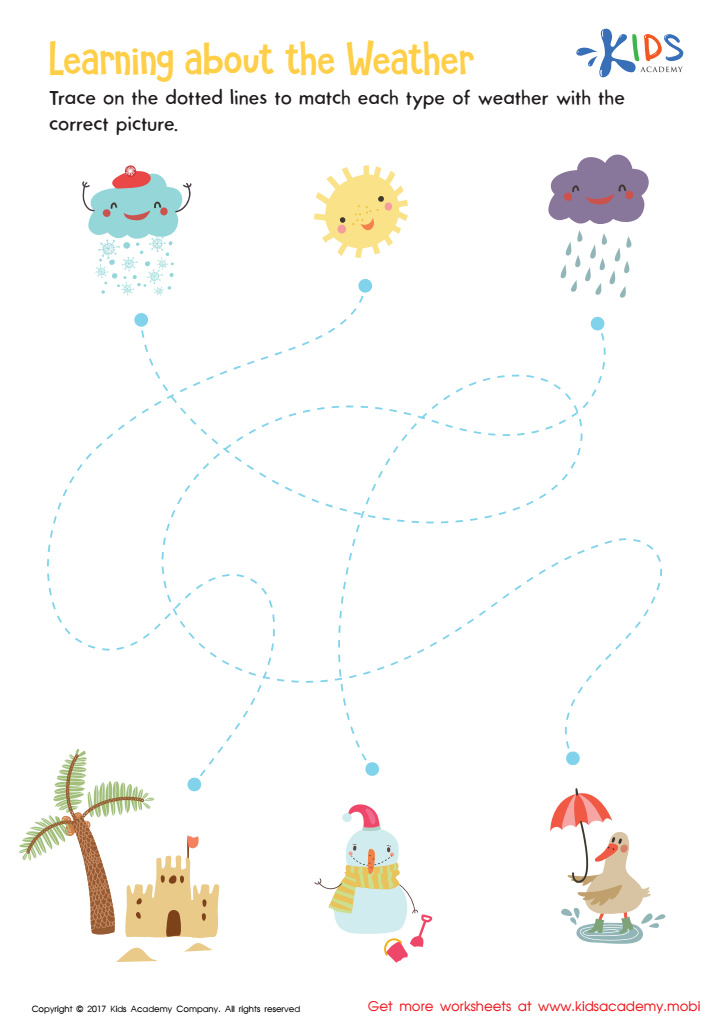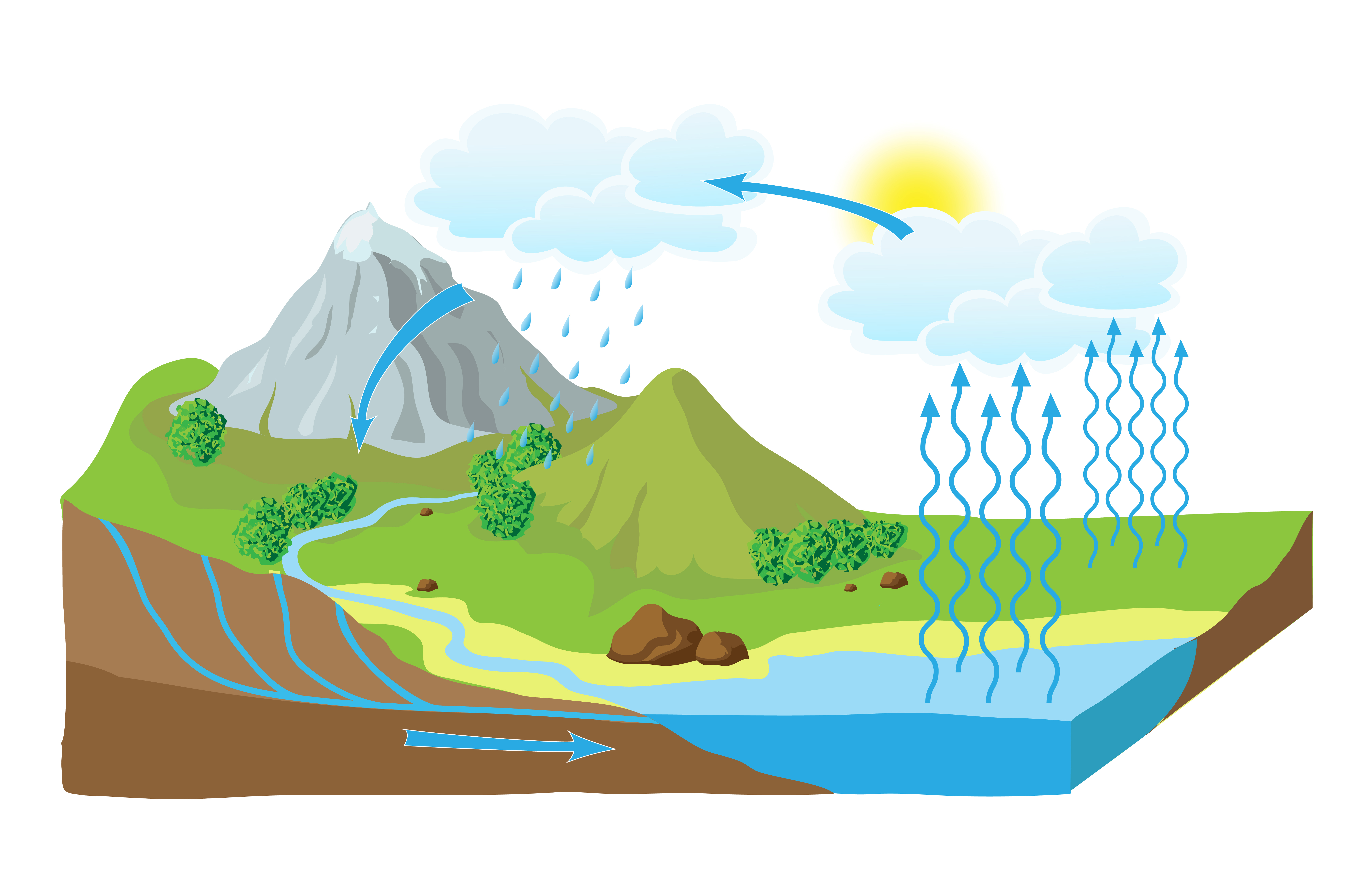Printable Weather Science Worksheets for Kids Aged 5-6 - Fun and Educational Activities at Kids Academy
20 filtered results
-
From - To
Introducing our vibrant and interactive Weather Worksheets, specially designed for curious young minds aged 5-6. Dive into the fascinating world of weather with your child, exploring everything from sunny days to rainy afternoons through a series of engaging activities. These worksheets are crafted to captivate and educate, making learning about the weather an adventure. Ideal for both classroom and home use, our Weather Worksheets for Ages 5-6 are the perfect tool to spark a love for science and nature in your little one. Watch as they learn, play, and grow with our carefully tailored educational content.
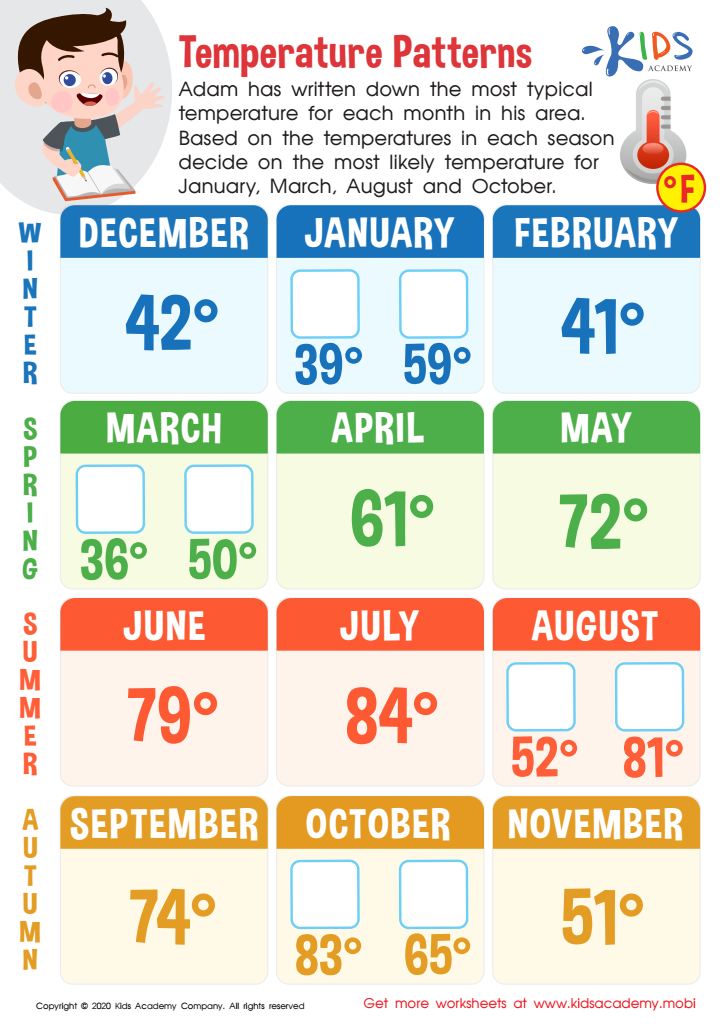

Temperature Patterns Worksheet
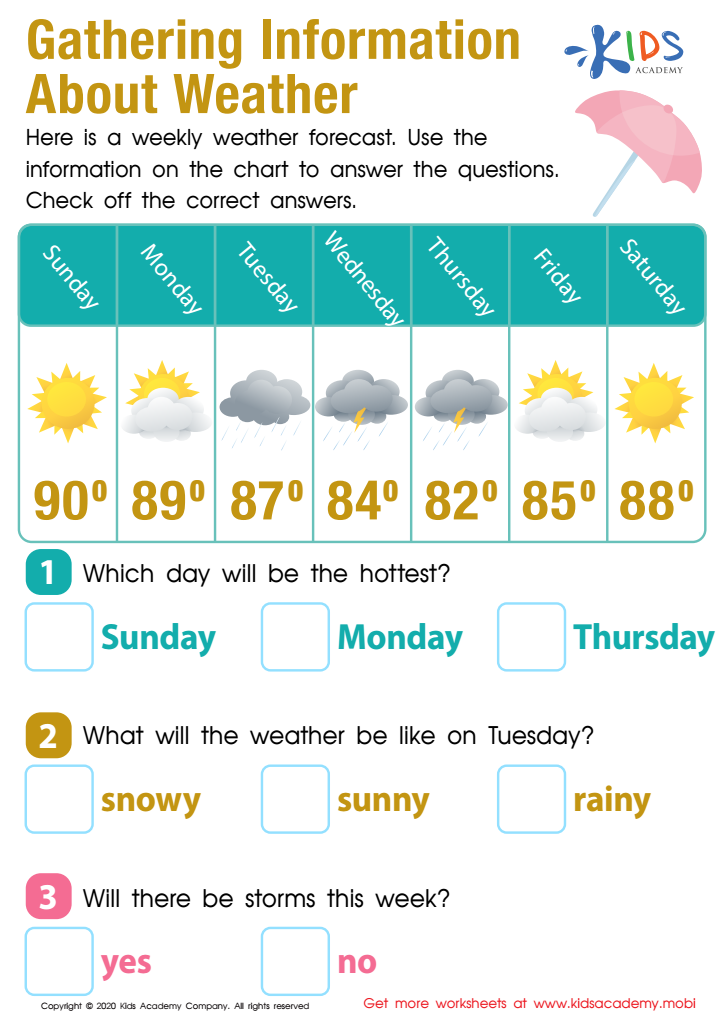

Gathering Information About the Weather Worksheet
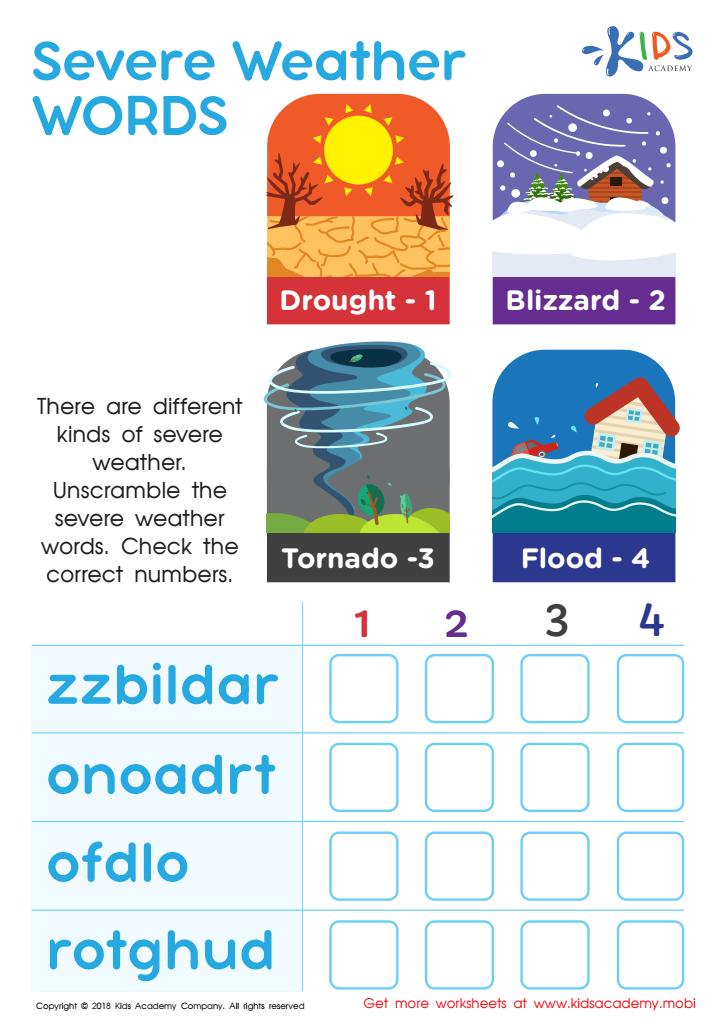

Severe Weather Words Worksheet
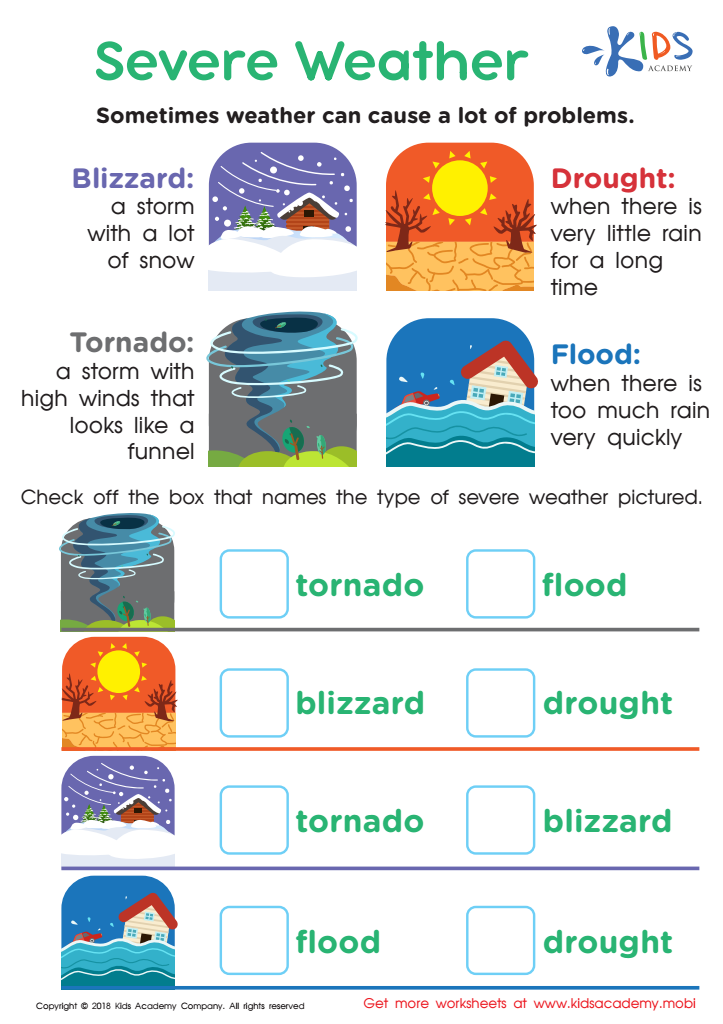

Severe Weather Worksheet
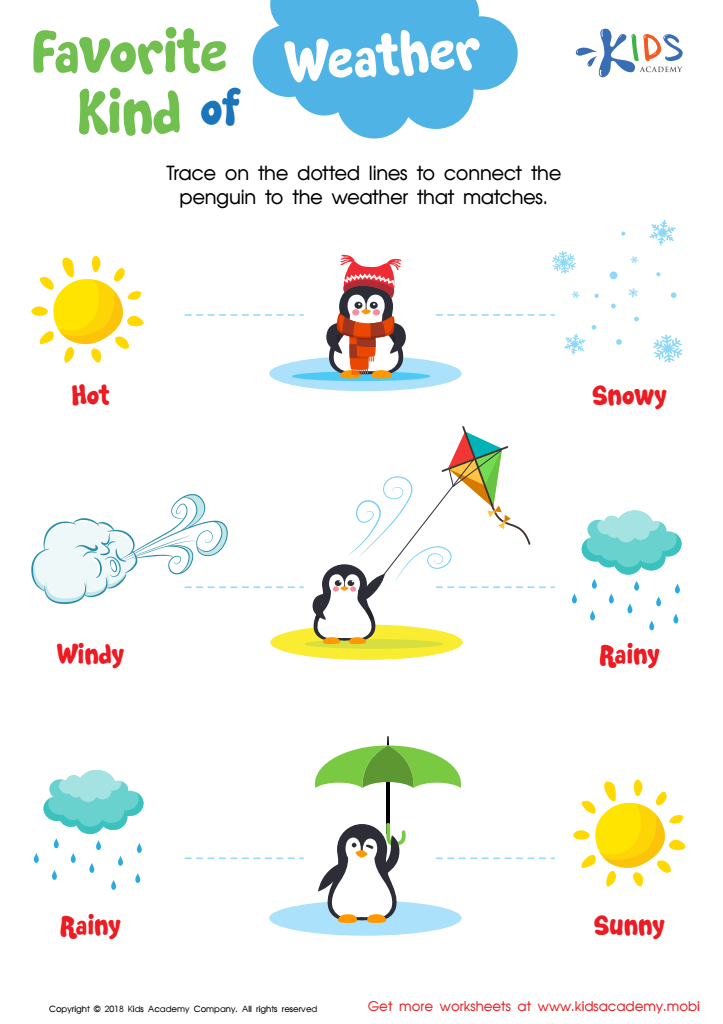

Favorite Kind of Weather Worksheet
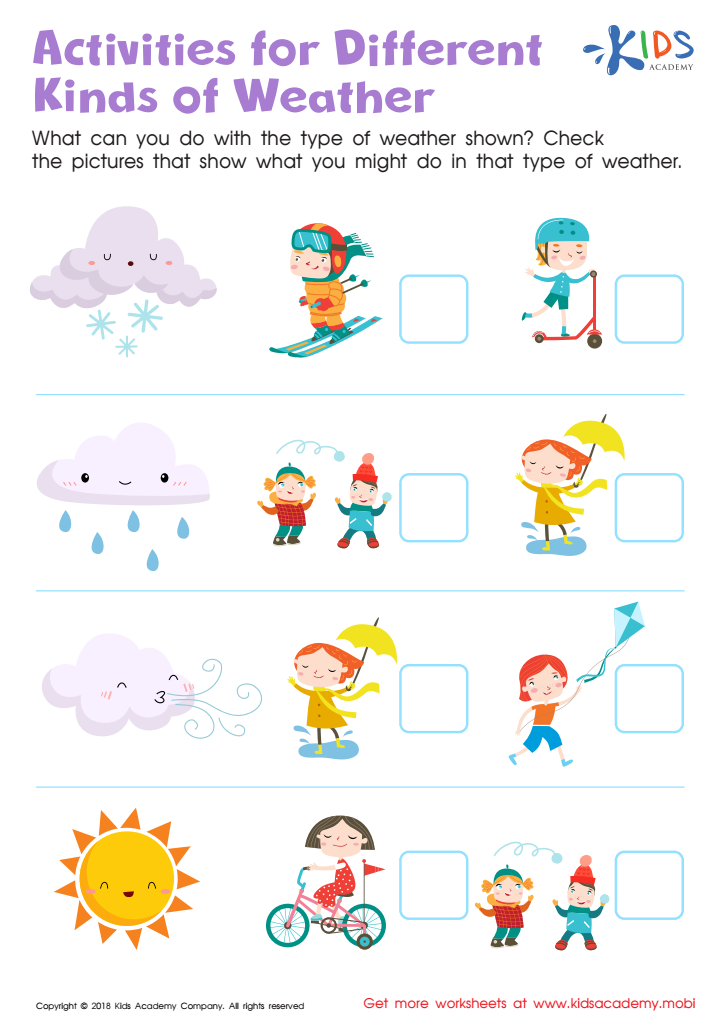

Activities for Different Kinds of Weather Worksheet
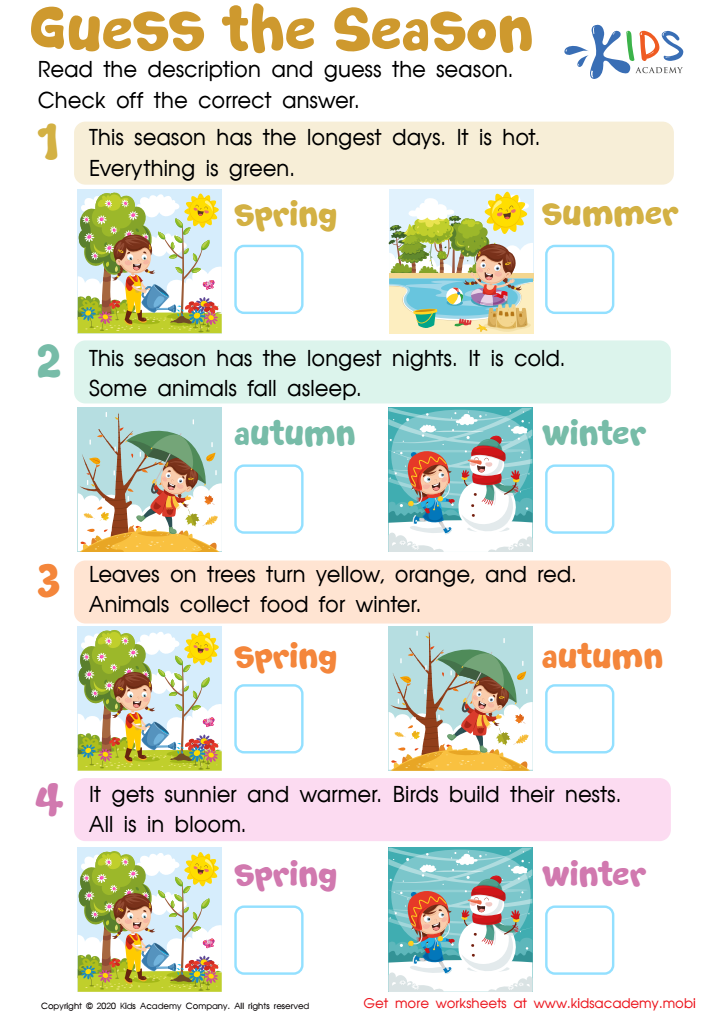

Guess the Season Worksheet
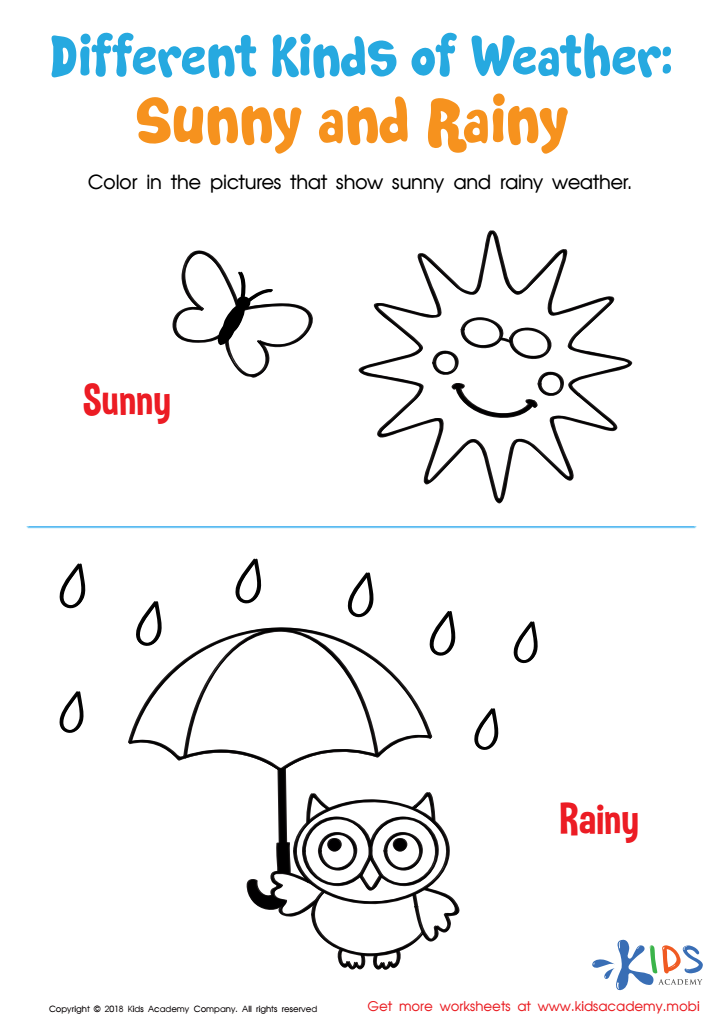

Different Kinds of Weather: Sunny and Rainy Worksheet
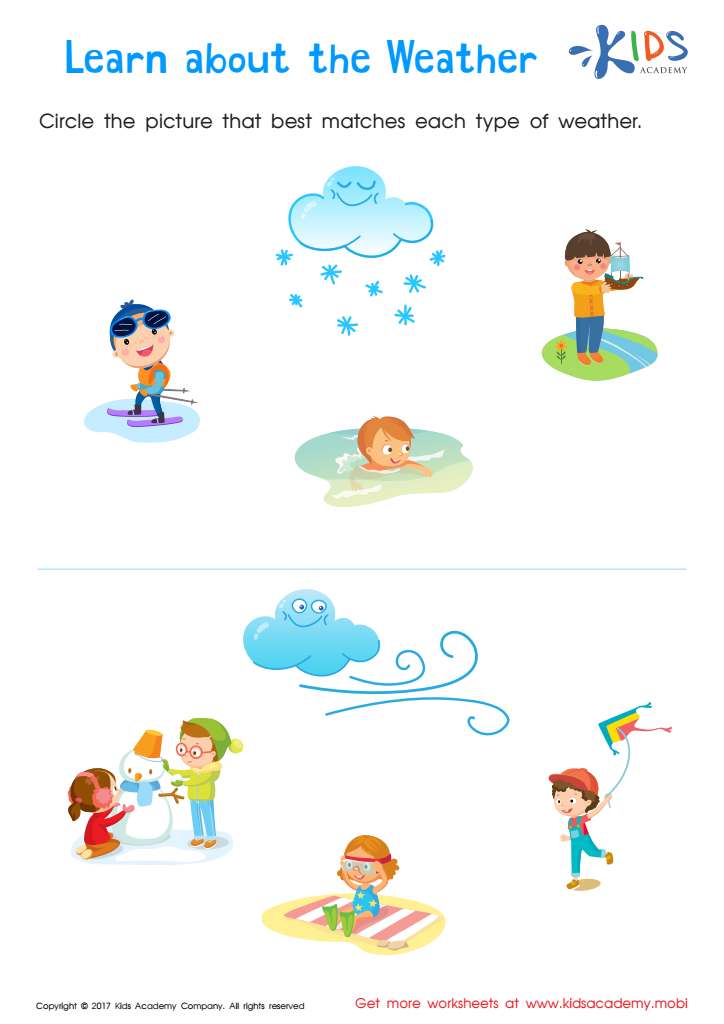

About the Weather Printable
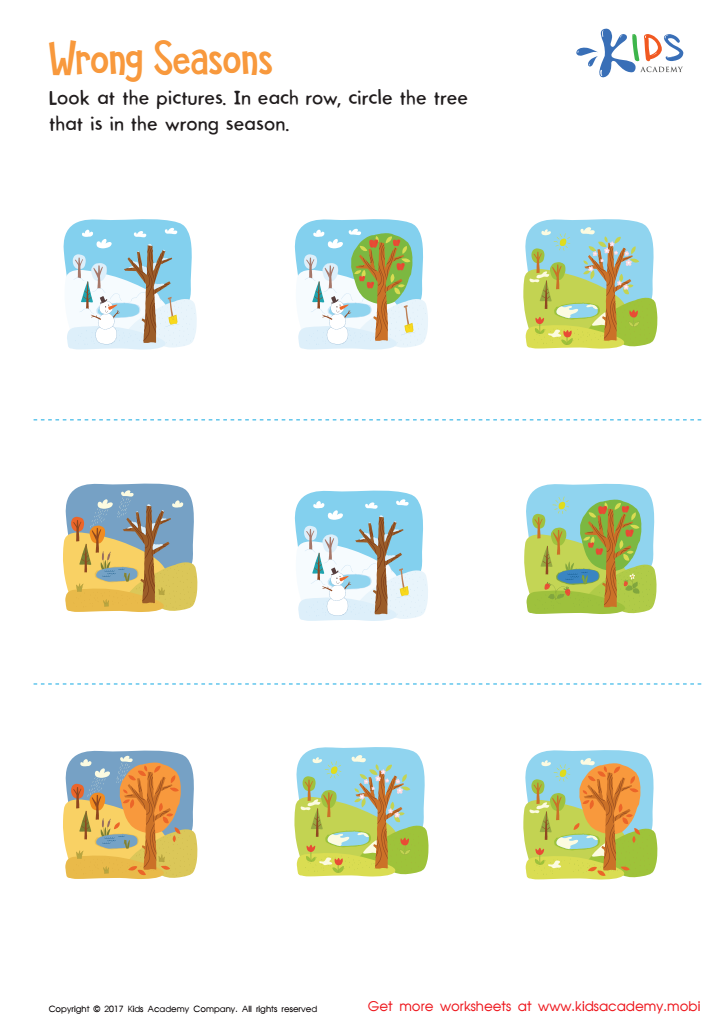

Wrong Seasons Worksheet
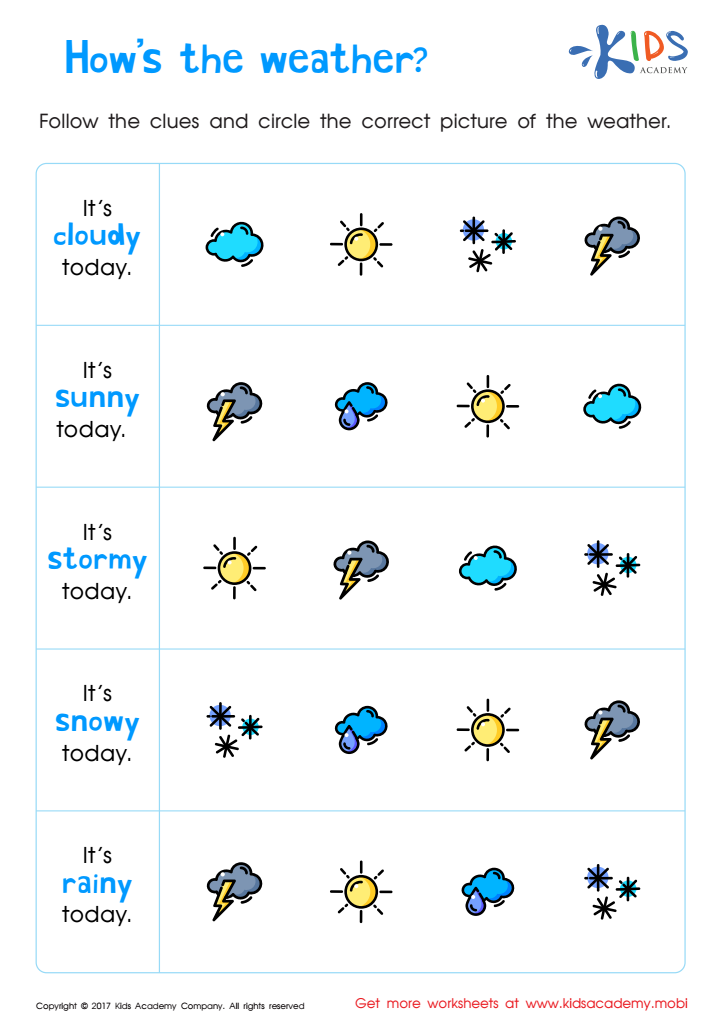

Hows the Weather Worksheet
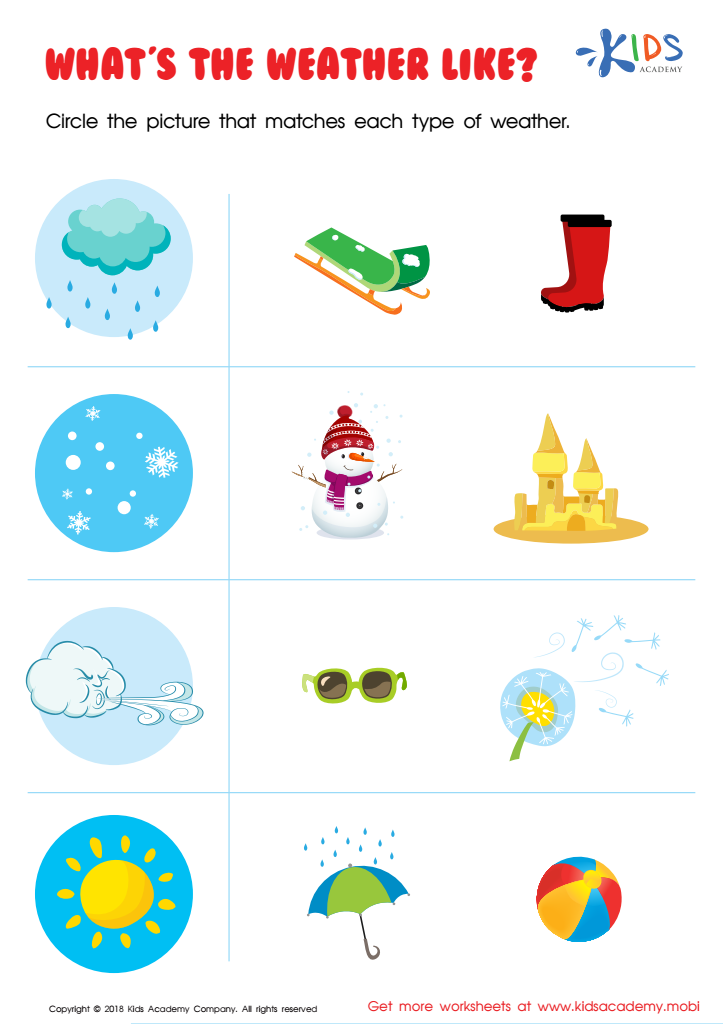

What's the Weather Like? Worksheet
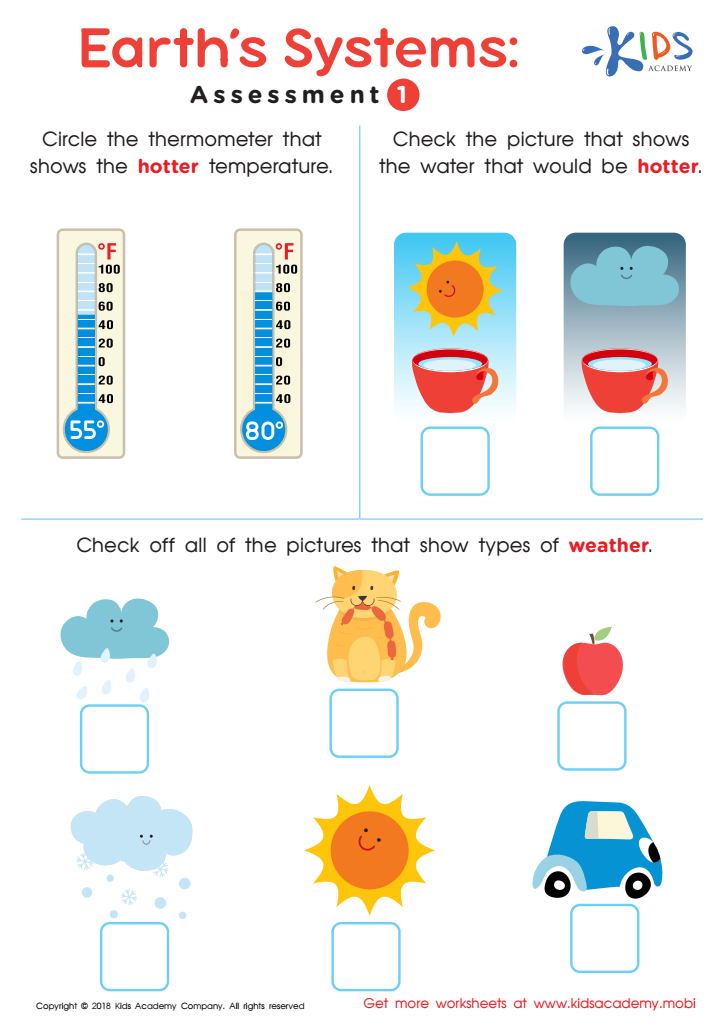

Earth's Systems: Assessment 1
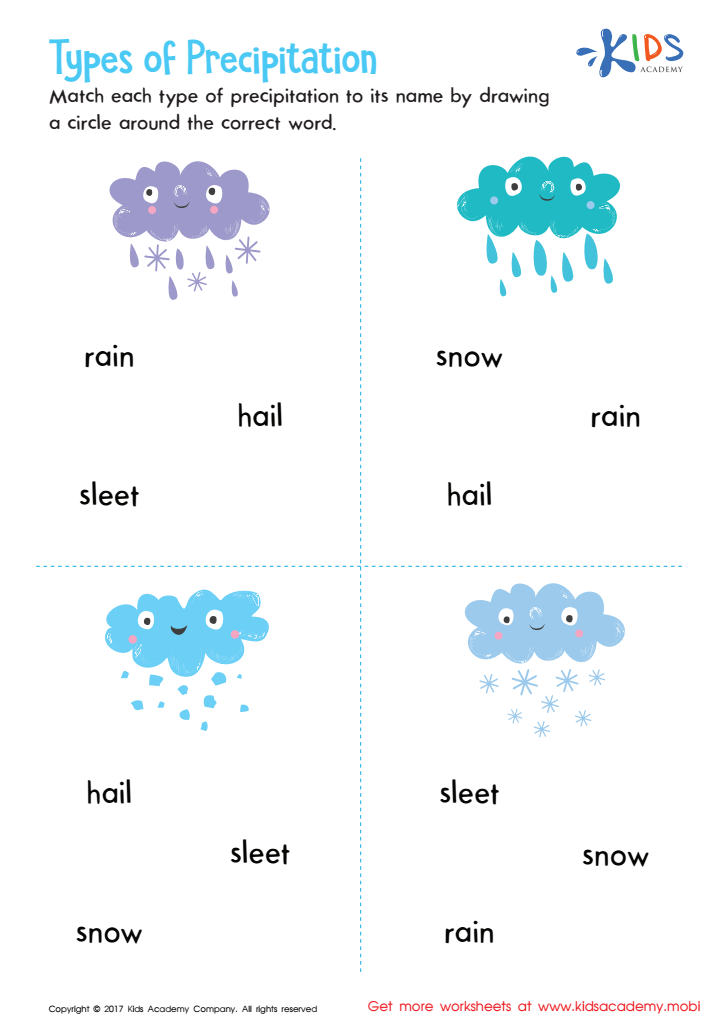

Types of Precipitation Printable
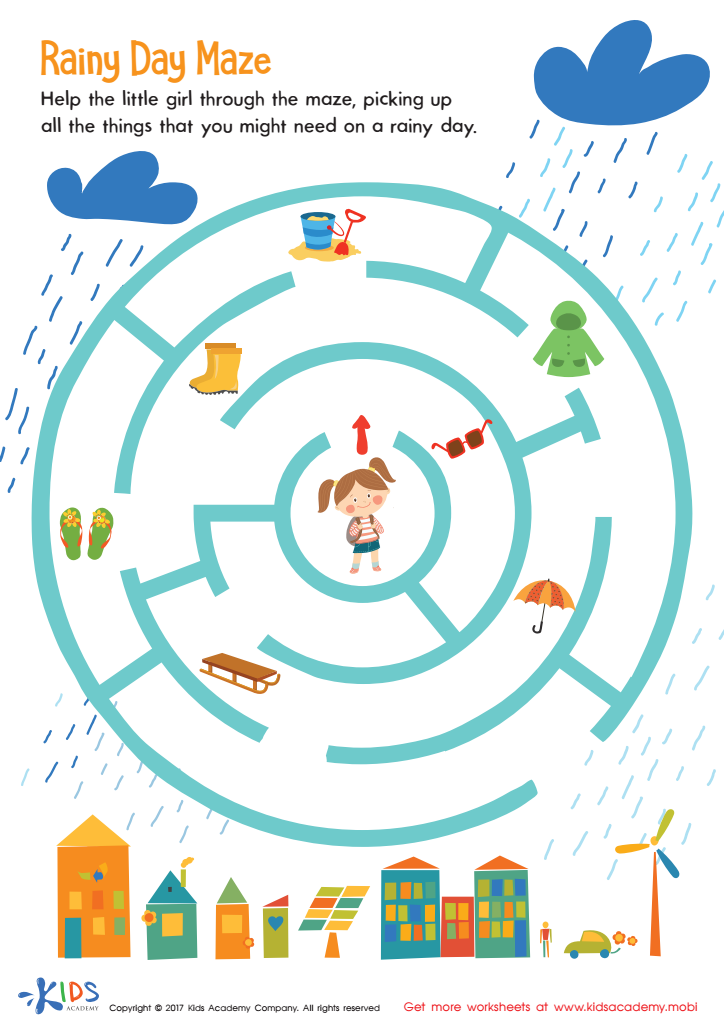

Rainy Day Maze Worksheet
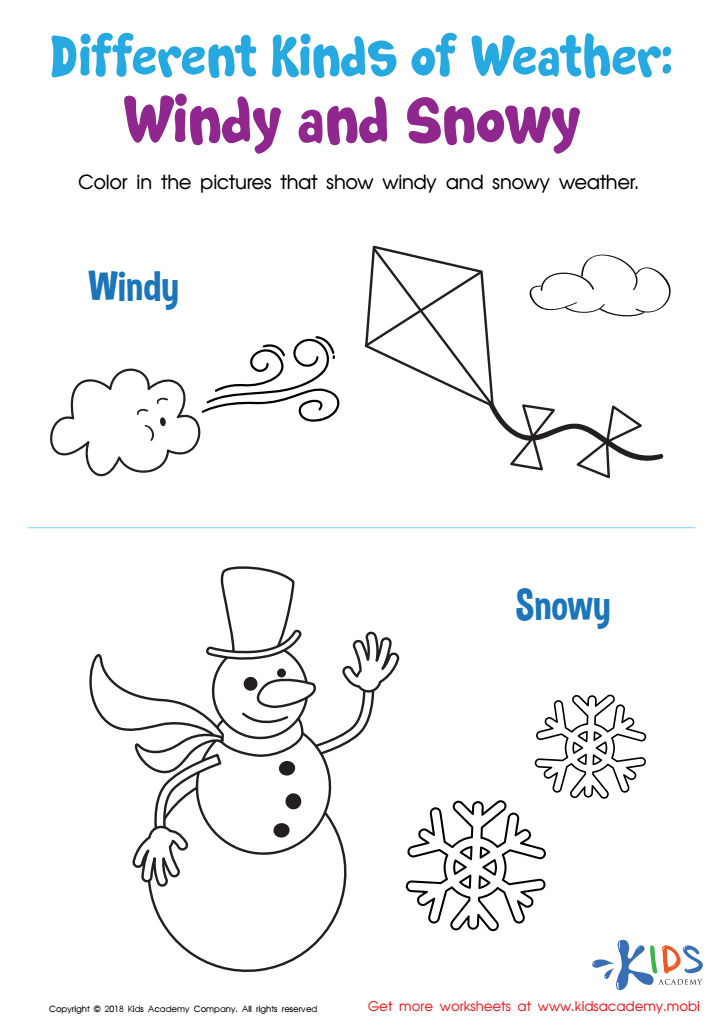

Different Kinds of Weather: Windy and Snowy Worksheet
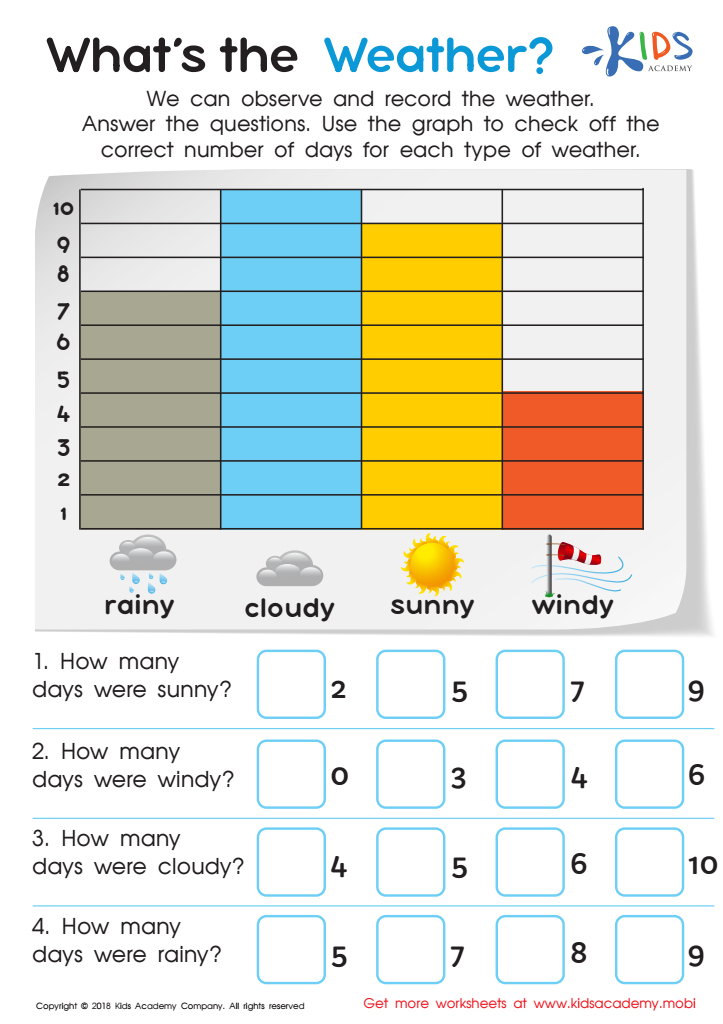

What's the Weather? Worksheet
Weather worksheets aimed at children aged 5-6 are an essential educational tool for introducing young learners to the fascinating world around them. These worksheets are designed not only to educate but also to captivate the curious minds of young children. Here are a few reasons why weather worksheets for ages 5-6 are incredibly useful:
-
Basic Scientific Understanding: They lay the foundation for a basic understanding of science. Weather is a daily phenomenon, and understanding it can spark curiosity about more complex scientific concepts.
-
Vocabulary Expansion: These worksheets help in expanding the vocabulary of young learners. Terms like rain, snow, sunny, and windy become part of their daily lexicon, enhancing their language skills.
-
Observational Skills: By engaging with weather worksheets, children learn to observe and describe the world around them. This observation leads to questions and discussions, fostering a deeper understanding and curiosity.
-
Critical Thinking: Through activities such as predicting the weather or matching clothes to weather conditions, children develop critical thinking and problem-solving skills.
-
Emotional Connection: Understanding weather helps children connect emotionally with their environment. It makes them more aware of the changes around them, fostering a sense of empathy and connection with nature.
In summary, weather worksheets for ages 5-6 are not just about learning facts; they are about sparking curiosity, building basic scientific understanding, and connecting emotionally with the world. These foundational skills are crucial for the holistic development of young learners.
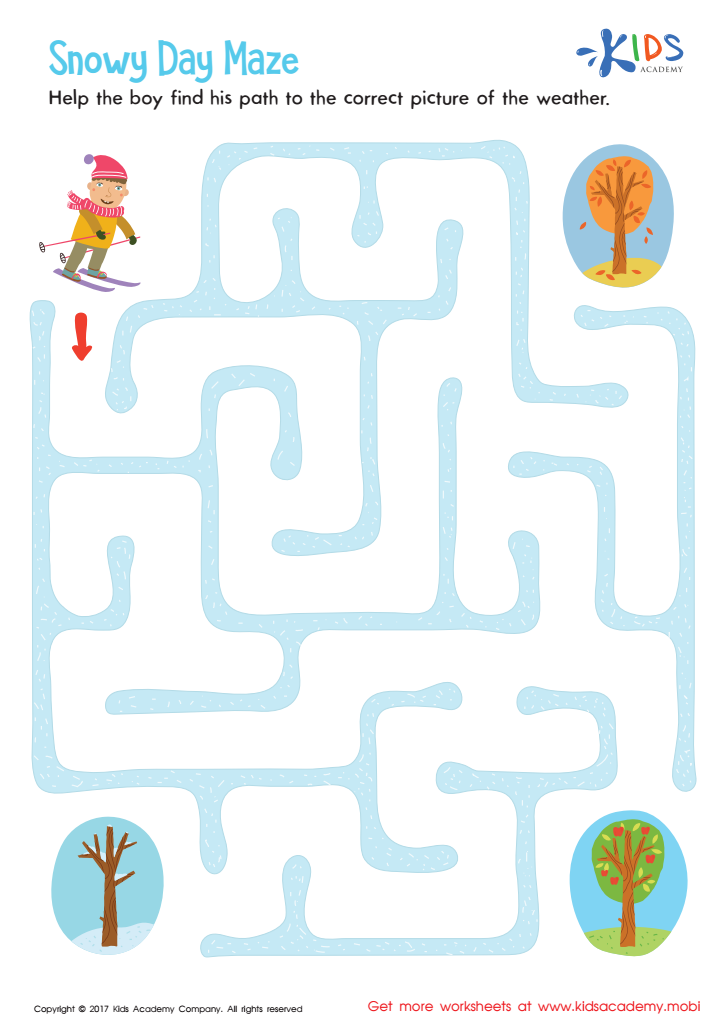
 Assign to My Students
Assign to My Students

